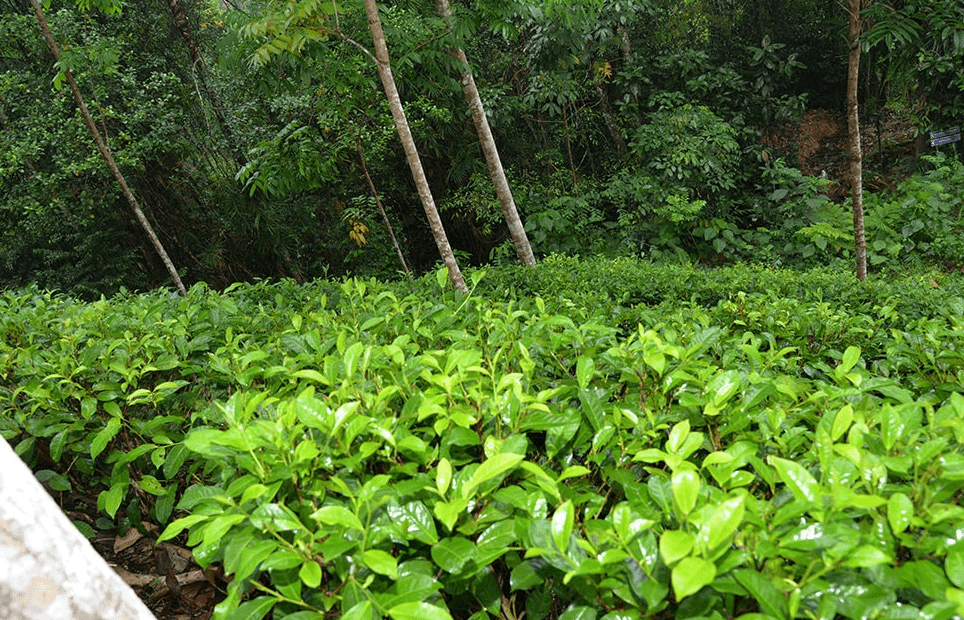Tea was introduced to Sri Lanka in 1820 or exactly one hundred and fifty years ago. It is amazing to think of any agricultural industry could have survived for such a long time in fact without undergoing major changes. The way Sri Lankans grow tea, pluck tea leaves and process them into ready to drink black tea has not made any major changes since the introduction of the tea industry. If at all, any changes that we can talk about in the tea industry are increasing output, expansion of tea cultivated land extent and improvement of tea quality. The tea industry has not taken always a very smooth route instead it has traveled through many rugged paths sometimes in steep down-hills and some other occasions straight climb-ups Within the agriculture sector there have been drastic changes to improve productivity. Heavy input and high output model basically considered as green revolution and many other newer developments such as gene modifications etc. have taken over the entire food industry to increase food supply to the world. Those changes initially have shown their positive results and also now started demonstrating negative results of excessive use of inputs, chemicals, and other hormones, etc. Drastic changes and damages to pristine ecosystems, soil erosion, polluted water, carcinogenic additives in food plate and adverse health impacts due to high input high output agriculture model are not a secret anymore. Food supply is secure but food security is a major concern even to date.
Although the tea industry in the entire world seems stable there is a major crisis within the tea sector itself, like many other agricultural activities of the world. I argue that the present tacit crisis in the food sector is an inevitable outcome of reckless spoliation of natural resources of the world. Poorly coordinated and selfish activities at the local level and subsequently at the global level made this crisis moving forward. One factory owner overpowered the other factory owner buying poor quality green leaf paying a higher rate than the other. They also add various chemicals, sugar, and other additives without much care during tea processing. The green leaf suppliers have supplied course leaf, wet leaf, and imposed high pressure on the factory owners. What we have observed in the last five decades is not a competitive tea industry in the world. It is a cut-throat “war” by various players. Regulators all over the world have also become part of the problem instead of being in the side of the solution. They failed to look at how the industry as a whole could gain. At the same time, worldwide consumers have changed their consumption patterns and are looking for healthy products. This is the shift in the world market that the tea sector could not grasp.
Recently one of my friends in the US told me that he wished he could take a glass of ice tea in the market and perform chemical and microbiological analysis and show the consumers that what they are consuming after paying such an excessive price of their ice tea. In this regard, I propose a paradigm shift in the tea industry without any delay at all. In a way, it is not a new paradigm. Tea is initially is grown as any other crop without heavy use of artificial agrochemicals or fertilizers in hundred years ago. Our ancestors grew and process tea as natural as possible. The new paradigm I am proposing is to going back to tea production and processing to its original ways and convert tea business into to a healthy drink-producing industry. A healthy product cannot contain pesticide residues. No, it can contain heavy metals. No Dyron, Glyposate, DDT nor POPs.
So, we need to convert tea sector into an organic or natural tea production industry wherever possible in the world without further delay. This will be a bold initiative. It will require major adjustments in the sector while reaping the benefits will take several years. We cannot continue to do business as usual. Reputation as quality tea producers is insufficient for us to thrive in this business. As much as we produce high-quality tea, we must also make sure that they are healthy to drink. It must be profitable and affordable to average consumers too. However, such paradigm shift requires resolving several key issues. A few such issues digressed below:
What is organic tea? As of today, there is no clear understanding about organic teas in the world. Do producers not know what specific requirements that they need to follow in producing organic teas? There is no special mechanism to sell organic teas in the world either. To some, it is just another type of tea that is cultivated without any fertilizer and agro-chemical applications. To some, it is the tea produced without fertilizers. However, such narrow definitions or conditions or requirements are incorrect or incomplete. Organic tea cultivation requires fertilizer applications. However, they must be natural fertilizers. Only artificial and harmful chemicals cannot be applied in organic tea production. Sometimes buyers know what they want to buy but most brokers and other domestic tea exporters and sellers do not aware of them. Therefore, there is a felt need to recognize Organic Tea as a specialty category of tea such as Ceylon Tea, Darjeline Tea etc. among many categories of teas. It is also important to stress that organic tea is not another type of tea such as green tea or white tea etc.
Organic tea sale methods are different: in a country like Sri Lanka where well-established auction system prevails for tea sales organic tea sales are not happening in regular intervals, or in a systematic way. In other words, there is no organized tea auction or marketing system available for organic teas. Organic tea buyers will have to search for organic tea producers or sellers. This is time-consuming as well as there is a problem of information flow among those stakeholders in the organic tea trade. This often leads organic tea producers to face serious cash flow problems. And also organic tea buyers often ended up not being able to buy truly genuine organic teas on time in the market. So, the organic tea market still stays largely underdeveloped.
Organic tea markets and the role of the regulatory body: It is strongly argued that organic tea production and promotion can be done through regular market mechanisms. Let the market regulate the organic tea industry and any specific barrier exists in the market then they must be removed by the regulatory body (of the government). Moreover, government regulatory bodies can intervene in whenever there are incidents of wanton harm to organic integrity, as such incidents may bring disrepute to the organic tea industry of that particular country. For example, if any producer or factory or seller’s tea is detected with chemicals, pesticides residues, heavy metal or any other harmful materials that are not sup[posed to be mixed tea the regulatory body must remove such producer/seller from using organic tea label in his/her products, despite what form of certificates they produce to show their integrity.
As much as those who damage the integrity of the organic tea market should be penalized in parallel there must be a program to reward those who safeguard the integrity of the organic tea industry. In any country, relevant regulatory agency officials of government and semi-government institutions should be made aware of the nature and mechanisms of the organic tea industry and also some exposure to how international organic tea markets work. Their lack of understanding of organic sector-related matters makes extremely difficult for producers, processors, and packers to function harmoniously and mutually respectable manner.
Consumer trust: The trust between the consumer and the producer is essential for a prudent organic market to develop or function in any country. Often organic tea consumer is far away from the organic tea producer. However, a consumer should be able to everything what s/he wants to know about organic tea production and processing methods and standards what inputs used or what inputs not used etc. The certification body in this context has a large role to play in making sure that consumer preferences to be reflected in their certification process. Consumers can visit tea producing lands and processing factories and packing plants, if needed. If any producer or processor violates the trust had formed on them by the consumers it is necessary that consumer can move away from the party that was unable to maintain the trust as expected by the consumer. Through consumer associations, brokers, certification body and building direct relationship with the producer and consumer the organic market can thrive.
A world body for organic tea: It is proposed to establish a world body for organic tea development, promotion and regulation. It can be an apex body of country specific organic tea bodies collectively formed into a world organic tea body. This organic tea world body should look after organic tea production, sales and promotion activities of the world commencing from country specific manner. Such organic tea body must be able to find adequate resources to undertake its specified tasks. This body should promote organic tea business in the world. It should protect organic tea consumer and assist organic tea producers and processors. It also can sponsor organic tea education, promote award ceremonies nationally and internationally coordinate with country specific Tea Research Institutes and other relevant research bodies, private sector R and D arms. It also can promote (i) organic tea production, (ii) organic tea fertilizers, (iii) organic tea processing methods and techniques, (iv) organic tea sales and marketing, and (v) value-added products for organic tea in any country and (vi) organic tea consumer research activities.
The way forward: These proposals do not work if various players of the game do not function prudently. It is a must to establish transparent and respectful and trustworthy organic tea sub-sector if we are to harness the potential benefits from these new imaging trends. Any form of corruption must not be tolerated. Ground-level tea growers must be empowered and they must make responsible for their product quality. The certification system must be allowed to function in private hands. If any government agency wants to establish its own certificate system they are free to do so. However, it should be done on a competitive basis with the private sector accrediting agencies. All players in the organic tea industry must work for the sake of serving the trustworthiness and integrity of the organic tea sub-sector. The trust is the basis of the success and consumer is the judge in the organic tea sub-sector. All others must help such sector ethics to develop in time to come.
P. Abeygunawardena
CEO, Nilmini Estates (Pvt) Ltd,
Director, Ahinsa Organic Teas, Sri Lanka

